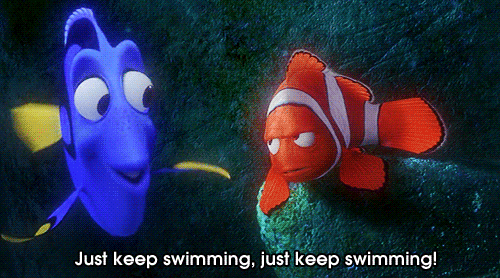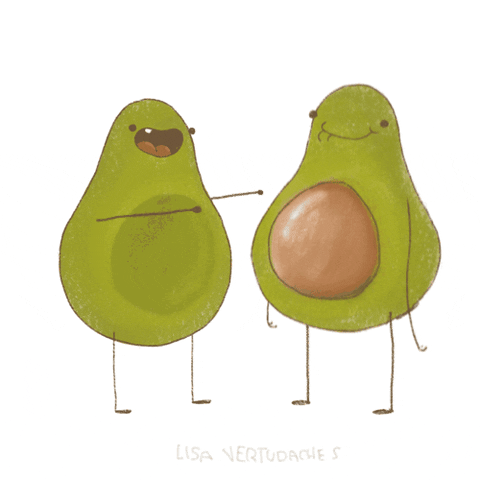The other day my therapist told me a self-help story: the poisonous parrot, and it put my mental health into a new perspective....
Imagine that you are given a parrot. This parrot is just a parrot, with no understanding or prior knowledge. It recites things 'parrot-style' and this parrot is poisoned. This parrot is trained to recite things you think. Things that are unhelpful. Comments on you and your life, constantly criticising you.
For example, you go out with friends. The parrot is constantly picking up on everything you say and do: "why would you do that?" "why would you say that?" "you can't do anything right, you're worthless" "they don't really like you- you aren't nice" etc etc.....
How long would you put up with these comments from this parrot before you decided it was enough? How long would it take you to throw a towel over the cage, silence the bird or get rid of it?
The thing is we put up with this internal bullying monologue when it's in our head. We hear that parrot in our minds, except it's not a parrot- it's our own thoughts. We hear it, believe it and it upsets us. It shapes how we feel, behave and think about ourselves, the world and others. So even though the parrot is our inner voice it doesn't matter, we need to treat this poisoned monologue the same way.
What we need to do is learn ways to counter what this parrot says to us, coping mechanisms to avoid dwelling on what we hear the parrot say. We can learn to notice that the parrot is talking, recognise that we don't have to listen to what it is saying and put our attention onto something other than the parrot. But this parrot is persistent and we have listened to it for so many years that it's habitual. So you have to be persistent and eventually you will notice this parrot less and less.

From an evolutionary point of view, humans are predisposed to anxiety. Vigilance is a vital behaviour in all animals, ensuring safety and protection of resources. Therefore the human primitive brain it is hardwired to be anxious, to prepare for threats. This vigilance trait has evolved with us and maintains an integral part in driving behaviour, however in modern day this is more centred around social life. Instead of feeling anxious about threats to survival, modern life has caused this inner anxiety to focus on threats to social status and interactions with others.
Anxiety often manifest as an constant internal monologue (the parrot), your brain feeding negativity about everything. This creates a natural negativity, so it's necessary to avoid reacting negatively to anxious thoughts but rather realise and accept its natural. By accepting it, you're one step closer to creating coping mechanisms to counter the negative thoughts.
Coping mechanisms are anything that helps you relieve that anxious pressure in your mind- a way to manage the internal stress. If we are naturally disposed to feeling negative then we have to do things to feel positive.
It's different for everyone, but my coping mechanisms are:
- Swimming: honestly the monotony of swimming up and down is one of the best ways for me to process my thoughts, anxieties and everything else. It's a time that I can think through everything and then leave it all in the pool, so when I come out I not only have the endorphin rush from the exercise but I feel more relaxed.

- Writing: Channelling those thoughts and feelings into writing is a positive way to reflect on them. When you write them down it gives you an outlet to dispute any thoughts and put them into perspective: they don't define you.
- Music: It seems obvious but music is a great distraction. feeling low and swallowed by all those negative thoughts, put on some up beat happy music and dance. I'm not lying, it distracts you and puts your attention on something else.

- Limit Alcohol: This one is more prevention than coping but for me it's been an important one. Reduce alcohol intake. Alcohol is a depressant and makes you tired, which often lead to an even lower mood and increased anxiety because social cues are often missed when drunk, resulting in self criticism. Whenever I would drink on a night out (often heavily which I'm not proud of) the next day my head would be full of ruminating negative thoughts that circle around my mind.
I have been reducing the amount I drink on nights out for a while now, not drinking if it's just a causal night and limiting the amount if it's a big night out. I've found this has really helped reduce the amount I hate on myself.
Everyone's coping mechanisms differ and a lot of it is trialling different things to see which works for you. Try new things to see what makes you happy.
Basically the whole conclusion of this post is that we have to BE KIND TO OURSELVES.
We put up with a lot of hurtful negative thoughts and criticisms about ourselves. You wouldn't say half the stuff you say about yourself to another person, so how long are we going to treat ourselves so badly.
It needs baby steps. We all do it and we have all done it for so long. We all need to try and focus your attention on things that make you happy and when you start to hear that inner parrot, recognise that you don't have to listen to the hurtful speech.
No comments
Post a Comment